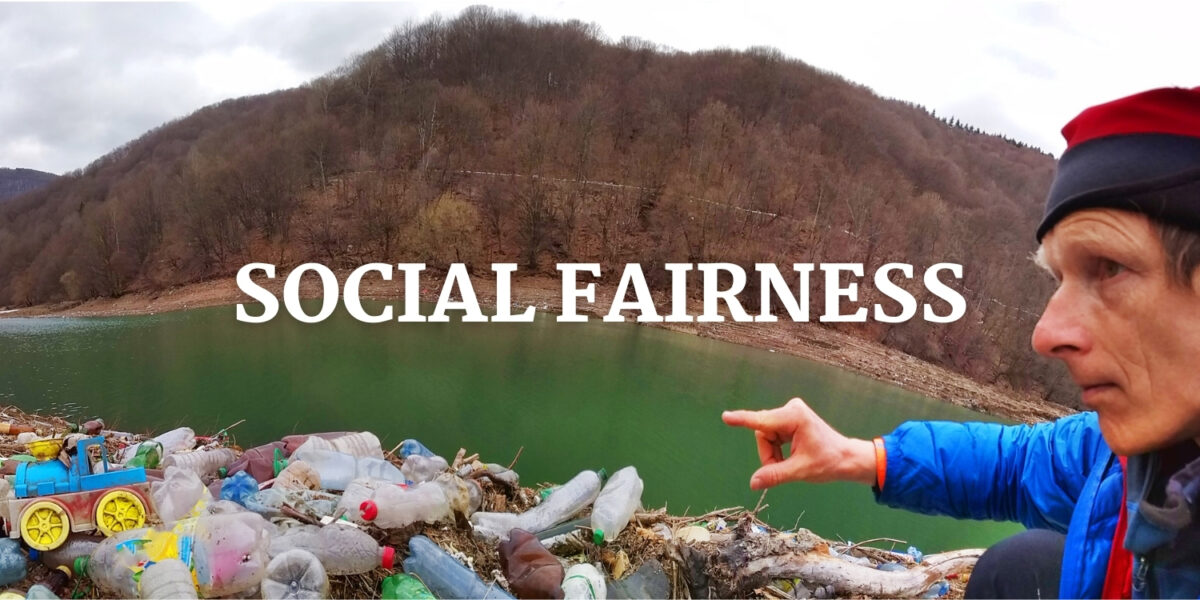If This is Today, What Will Tomorrow Be?
The Great Deception of ‘Recycling’
Over the past 100 years society has steadily moved away from the concept of “Lasts for a Lifetime”. Manufacturers have convinced us to appreciate “disposable”. Humankind has embraced disposability. We’re now able to endlessly surround ourselves with “newness.” This has generated a global explosion of manufacturing and commerce, bringing higher living standards to a great many people worldwide.
Today we see the true cost
The ever-increasing quantity of waste created by humankind has become a challenge of enormous complexity – and of critical importance.

So much packaging!
Fortunately, these last twenty-five years have seen a concerted human effort to recycle. Unfortunately, many materials are not easily recycled, plastics being the most challenging.
You probably don’t recognize any of these symbols. These symbols are molded into every plastic part that’s made in America (or imported into America). Americans are all supposed to have memorized these symbols to assure correct separation of differing plastics for recycling:

Even when discarded containers have all been molded from the same material, we don’t yet know how to safely clean contaminating residue from the plastic material. Recycling is expensive and complicated.
We continue to assume that plastic is an easily recycled material. IT IS NOT!
Hidden from our sight in third world countries, mountains of discarded containers and packaging materials grow larger every day. This ‘waste’ is contaminating and changing our planet. Most plastics manufactured today will take a thousand years to decompose.
All plastic materials ever manufactured are still silently hiding all around us.

The good news is that technologies now exist that will cause newly manufactured oxo biodegradable plastics to disappear in a much shorter time. We can now make plastics oxo biodegradable.
Oxo biodegradable plastics are made the same way as traditional plastics but with small amounts of biodegradable additives. These inexpensive additives allow microbes to penetrate the plastic after a predetermined timeframe. The time of degradation can be controlled within ranges. Once the oxo biodegradation process begins, plastic will oxo-biodegrade at a rate similar to wood, metals, and other materials. The decomposition of new plastics can now be managed and controlled.
Some manufacturers reject oxo biodegradation of plastic for logical reasons:
Plastic materials are valued because they are durable:
Plastics don’t rust.
Plastics can be engineered to not require paint.
Plastics can be engineered to resist breaking when dropped.
Plastics can be engineered to remain strong and unchanged despite moisture and temperature changes.
Some manufacturers reject oxo biodegradation of plastic for less defensible reasons:
It is new.
They can sell their products without it.
Even though the cost is low it is still an added cost.
No one is yet forcing them to do it.
Plastic materials are now commonly used in clothing and cosmetics. Plastic microfibers and microbeads wash into the environment every time we wash our faces and wash our clothes. These microfibers end up in the water we drink and the food we eat.
Plastics in cosmetics and clothing do not need to remain durable for a thousand years.
Better Trick is dedicated to creating useful products from non-plastic materials that decompose naturally, or from plastics made with additives that enable useful service for many years and then oxo biodegrade into carbon dioxide and water.
Better Trick envisions better management of plastics for a better tomorrow.



